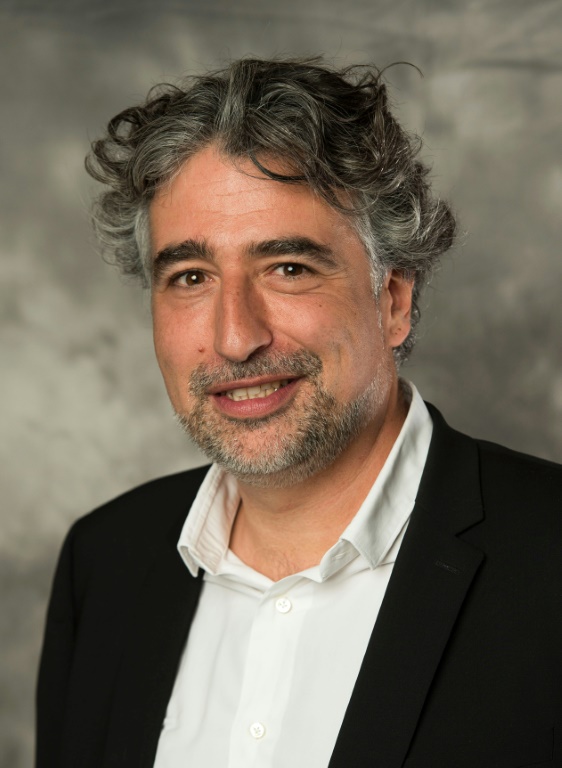
The veteran film-maker's answer is an unflinching exploration of racism in France at a time when the nationalist politics of presidential candidate Marine Le Pen have become part of the political mainstream, and racially-motivated attacks are on the rise. Why Do They Hate Us? which gets its US premiere on Sunday as part of the Colcoa festival of French film in Los Angeles, is a documentary with a difference.
Like a non-fiction version of Mathieu Kassovitz's groundbreaking 1995 movie La Haine, Amiel's three-part documentary is told from his own perspective as a Jew but also through the eyes of a black man and Arab woman. "We did three stories with people who are not especially victims of racism but are going to take the audience by the hand and bring them a narration with two sides," says Amiel, 43. "First, it's your own story and then it's an investigation of what racism is today."
Muslim woman detective honoured by Queen sues police over racism claims
Part one was made by Lucien Jean-Baptiste, whose comedy La premiere etoile (2009) was nominated for Best First Film at the Cesars, France's equivalent of the Oscars. The film-maker, who has Caribbean roots, investigates how blacks are represented in French society with right wing radio host Henry de Lesquen, who wants to ban what he calls "negro music."
In part two, Amelle Chahbi, who is of Moroccan descent, looks at the Maghrebian community in Paris to see if integration is working and confronts a fascist at a march. She asks the activist how he would keep Muslim numbers down and he replies, chillingly, "We need a president leading France who is a real nationalist, who will carry out a purge."
In part three, Amiel meets Jerome Bourbon, the publisher of anti-Semitic newspaper Rivarol, who asserts, matter-of-factly: "Before, when we were a Catholic country, we wouldn't have had a Jew at the table."
Amiel – a "cultural but not practicing Jew" and a highly-regarded former TV reporter – originally made Why Do They Hate Us? as a trilogy of television documentaries shown in France last year. Clips of the film-makers' exchanges with extremists were viewed online nearly 20 million times, prompting their theatrical release as one, two-hour movie.
UN blasts 'disturbing' racism against Aborigines in Australia
France's National Human Rights Commission, which produces an annual report on racism, found last year that attitudes to immigration have been softening since the dark days of the global financial crisis. Half of French nationals claimed not to be remotely racist compared with 43% in 2014, while just eight percent believed that some races were superior to others.
But these surveyed attitudes fly in the face of a darker reality: hate crimes against minorities are rocketing, up 22.4% in just one year to 2,034 incidents in 2015, with anti-Muslim hate crimes more than doubling. Meanwhile French Jews, the largest community outside of the United States and Israel, have been fleeing at a steady pace since the mid-2000s.
Anti-Semitic hate acts actually fell slightly from 2014 to 2015, but Jews are still the target of more than 20% of France's total incidents, despite making up less than one percent of the population.
On Sunday it had emerged that pro-European centrist and self-proclaimed political "outsider" Emmanuel Macron would stand against the Front National's Le Pen in a run-off for the French presidency, with the mainstream parties dealt a historic snub.
Dutch back Muslims as far-right MP vows to close mosques
Macron, the favourite, is campaigning hard for the Jewish vote while Le Pen – who wants to eliminate dual citizenship for French Israelis – is hoping her open hostility to Muslims will help gloss over her toxic family history of anti-Semitism.
Perhaps unsurprisingly, Macron is the candidate Amiel, a liberal on the left of the political spectrum, says he "dislikes the least."
"Here, Trump was elected. In England, we didn't believe that they would leave Europe and they did. Maybe we learned a little bit from what happened elsewhere, we showed that we can sometimes be more intelligent. It doesn't happen often," he said, while in Los Angeles. "We'll see in two weeks but everything is in a good way. Trying to be optimistic doesn't make you more clever but it makes you more happy I think."
Have something to add to the story? Share it in the comments below.







1732620609-0/Untitled-design-(9)1732620609-0-270x192.webp)
1732609662-0/Express-Tribune-(5)1732609662-0-270x192.webp)

1732607724-0/Express-Tribune-(4)1732607724-0-270x192.webp)






COMMENTS
Comments are moderated and generally will be posted if they are on-topic and not abusive.
For more information, please see our Comments FAQ